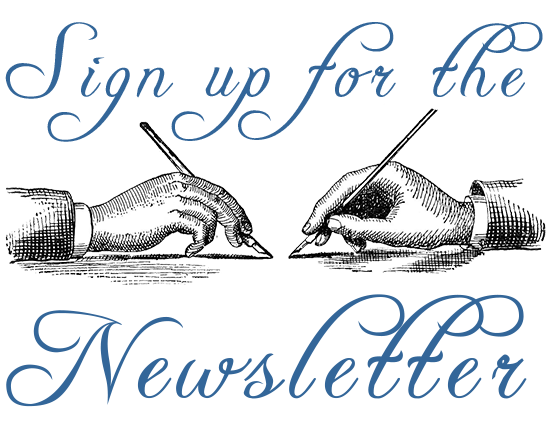Last Updated on June 7, 2023
“Beecham House,” a six-part Georgian era period drama, is coming to PBS Masterpiece. Before it does, let’s hear what the cast thinks about historical, costume, and period dramas, why they think we like them, why they do, and more.
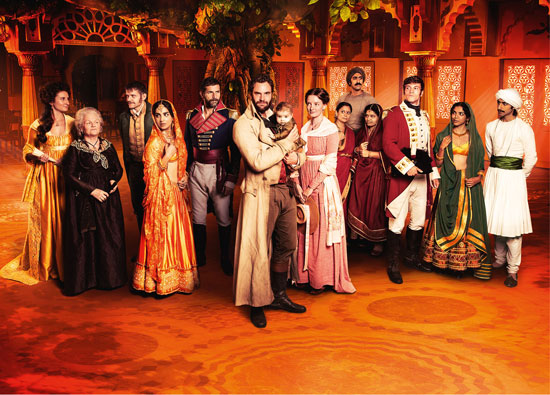
To help keep this site running: Willow and Thatch may receive a commission when you click on any of the links on our site and make a purchase after doing so.
“Beecham House” is available to stream with PBS Masterpiece Channel.
You can read about “Beecham House” and watch the trailer here.
What do you think viewers like about period dramas?
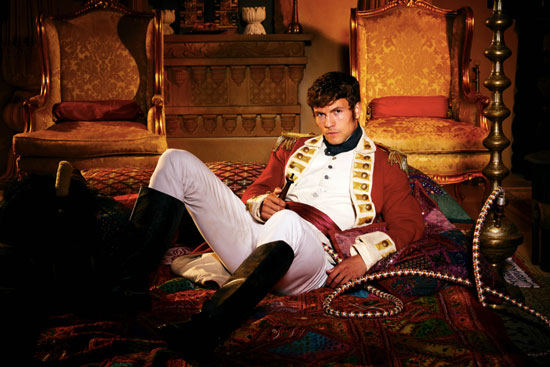
Leo Suter (Sanditon, Victoria)
“That is a good question and I’m glad it is popular because I enjoy doing it! It’s just nice to find characters in different worlds that are unfamiliar. (Along with the) element of escapism, there’s historical intrigue – what was the world like 200 years ago? You can read a great history book but to actually see a story played out in that setting is really exciting.”
Tom Bateman (Vanity Fair, Death on the Nile)
“They look beautiful, they’re very rich in composition. You’re instantly in another world. And horses! You don’t get to see horses that often. But for me, the reason I love filming period dramas, is that they instantly make you act differently. People don’t talk about their feelings as much. They don’t say, ‘Oh, I really fancy you’. And you don’t touch each other. So you have to find another way of expressing those feelings which is really fun.”
“There was a scene in Vanity Fair in which Olivia Cooke and I can’t say how we feel, because it wasn’t done, but my character is going to (the Battle of) Waterloo and it was so rich and dramatic. You’re torn between what you want to say and what you’re allowed to say. And it oozes sexiness because you’re watching and going, ‘God, just kiss her!’ It’s like Mr Darcy and Lizzy Bennett in “Pride and Prejudice.” You know they’re going to get together but it takes six hours of anticipation to get there.”
Lesley Nicol (Downton Abbey, The Lion, the Witch, & the Wardrobe)
“In America they get doubly excited about it here! I don’t know why that is any more than you do. Whether it’s period drama or any other kind of drama, what it’s got to be is a good story with brilliant design and brilliant costumes and production values. Just a period drama on its own is not enough. It has to be really well told.”
“If you’re interested in the story and it looks gorgeous, then that’s a good combination. People still talk about the costumes in “Downton Abbey” and it’s the same here although this time (in Beecham House) I have to say the men come off better than the women! They look gorgeous in these sexy clothes, and me and Bessie turn up in very heavy fabrics because that was the fashion. Whereas the Indian girls looked fabulous.”
Read more about what Lesley Nicol had to say about her role and experience working on the new series.
Bessie Carter (Howards End, Cranford)
“People like to escape into a world that isn’t theirs, don’t they? And with “Beecham House,” we have the added element that it’s set in India at quite an important political time.”
How do the sets and costumes inform your character?
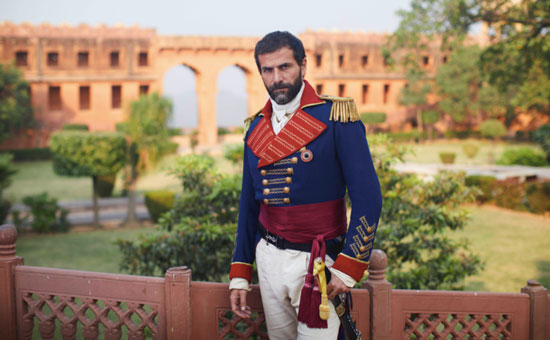
Grégory Fitoussi (Mr Selfridge, Emperor)
“As soon as you get into that costume you’re straight into character. The boots make you walk differently, the sword is heavy and you can’t really walk normally with it. It’s not that I always want to do period, it’s that I want to do something different and I’ve never done this period before, or worked in India, or worked with (the director). I like to free my mind and my imagination and guess how it would have been, when I act, and that’s easy to do with period drama.”
Leo Suter (Sanditon, Victoria)
““Beecham House” was on an epic scale. The number of crew and extras was huge. It is an enormous help as an actor because you just walk onto set and it’s all there for you. The scale was fantastic and you get a real buzz turning up to work. There’s a real fervour – 500 people all working towards the same thing. It’s daunting but once you get on board it’s fantastic.”
Marc Warren (Jonathan Strange & Mr Norrell, Oliver Twist)
“Often the most challenging thing in a period drama is just the costume. One of the greatest filming experiences for me was doing Alan Bleasdale’s Oliver Twist. I really loved that because it was a really memorable experience. You just go into another world and if it’s done well it looks wonderful, you look great because you’re wearing these incredible costumes, and it does all the work for you. It automatically creates a character whereas something contemporary we wouldn’t look quite as good.”
Why do you like acting in period dramas?
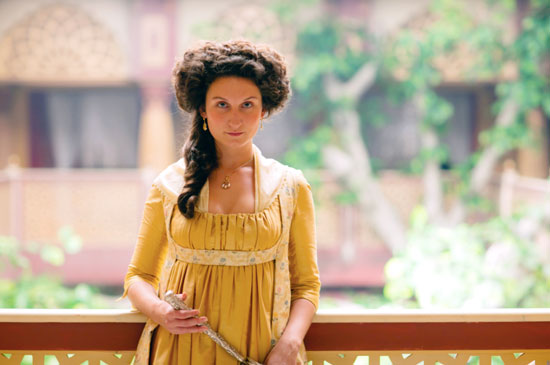
Bessie Carter (Howards End, Cranford)
“I think it’s all I’m ever going to do! I have done a lot, yes. And I’m doing All My Sons at the Old Vic next which is American which is a slight change but it’s still period. I enjoy period drama because I like being in a character. I like the challenge of creating a person the audience can relate to, even though they lived 200 years ago.”
“I also enjoy the language. I love Shakespeare, I love the poetry of the way people used to speak. But I do also really want to do comedy. I haven’t had enough of a chance to do that so I do want to branch into that at some point.”
What is so interesting about India in the Georgian era?
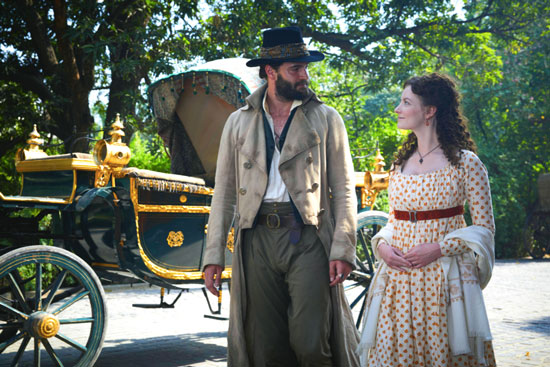
Dakota Blue Richards (Endeavour, Lightfields)
“It’s one of those times where you’re just on the cusp of massive change. It’s a period in history where you can draw a line from there to today. So for example, you can trace the drug epidemic of today back to the East India Company. The fact that everybody speaks English in India goes back to these times too.”
“I don’t think anybody in this show is victimised or shown as weak, but equally nobody is shown to be entirely virtuous. It’s quite an honest portrayal of the good and the bad on both sides. We have a lot of answering to do for that period in history. There are some things we never let go of in history but the way we treated people in India at that time isn’t really talked about even though they’re still suffering the consequences. So I think it’s really important those stories are told and that they’re told with an Indian perspective as well as an English one.”
Bessie Carter (Howards End, Cranford)
“Between (the) Georgian and Regency times… things were shifting back in England. I didn’t know much about that time and it was bloody depressing, doing my research. At school you learn about playing cricket and drinking tea but when you go into detail, you learn that we were really awful and it was a really awful time for most people.”
“We’ve seen lots of TV shows and films set during the Raj and that period, but this is the moment before that. For people from Britain at that time, India was such a mystery and it was such a huge voyage to get there, so it was really going to a world that you knew nothing about. Someone like (my character) Violet might have seen women disappearing there and coming back dripping with rubies and suddenly married. And for her, that was the goal!”
“Beecham House” series co-creator, writer and director Gurinder Chadha (Bride & Prejudice, Viceroy’s House), talks about the epic and ambitious new period series coming to PBS Masterpiece, here.
If you enjoyed this post, you’ll want to wander over to The Period Films List. You’ll especially like the Best Period Dramas: Georgian Era List.

